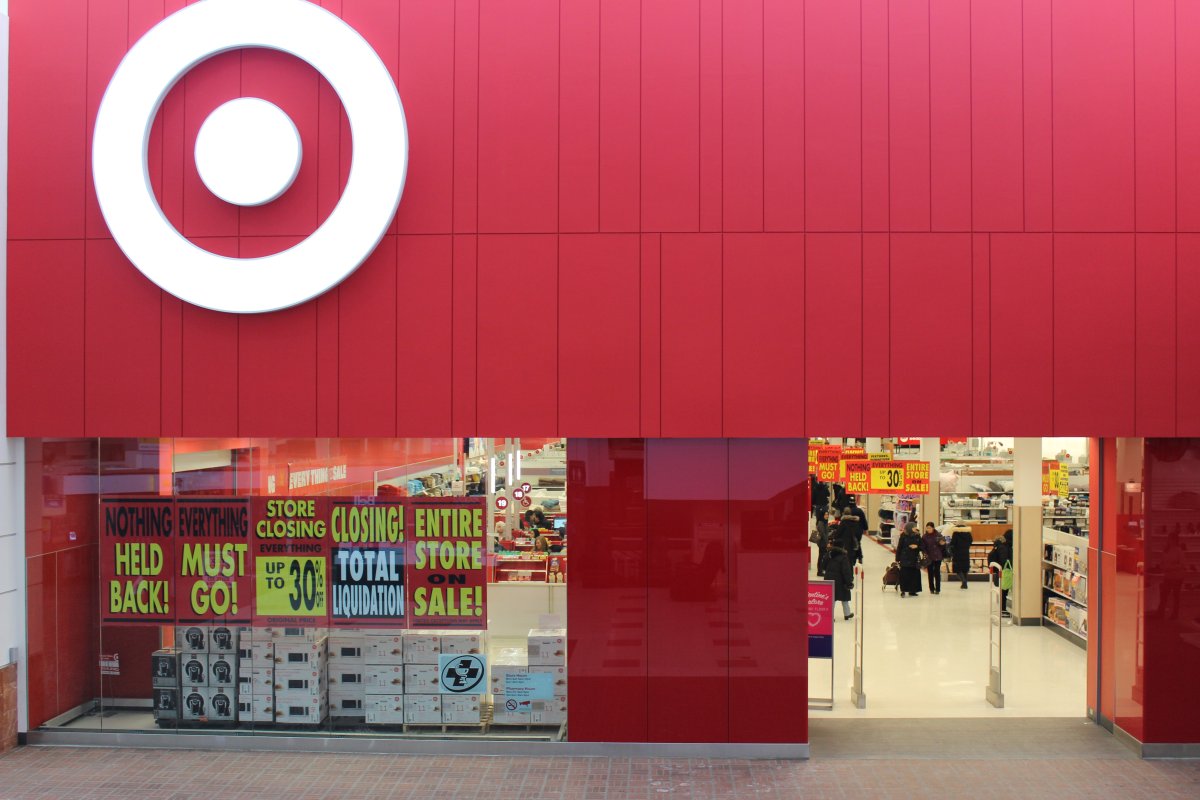Target Canada’s rivals have been circling the retailer’s network of 134 stores for months, sizing up whether or not to snap up locations being vacated by the now-defunct chain.

Only two have swooped in from the looks of it. And even then, their appetite has been limited. Following an auction that was completed earlier this week, the big national retailers who were supposed to carve up large swaths of Target’s network haven’t.
Instead, they’ve nibbled off small bites.
The first public indication of less-than-robust interest occurred last week when Target simply handed 55 leases back to landlords, unable to find bidders for them. This week, both Canadian Tire and Walmart announced intentions to pick up several locations each, the former taking on 12 leases, the latter 12, plus one corporate owned store.
That means on the surface of it, four out of every five Target locations seemingly have no successor tenants lined up.
That will likely change. Loblaw, the biggest retailer in the country, is publicly talking down interest in Target’s stores, suggesting on a call this week observers shouldn’t expect “meaningful news” from the grocery giant on the matter. But Loblaw may end up with locations yet, some suggest.
In general though interest is lighter than expected, perhaps considerably. “In our view, retailers are being very selective in acquiring additional space,” Keith Howlett, a retail stock expert at Desjardins Securities, said.
Here’s five reasons for the tepid uptake from retailers:
- Toronto Pearson gold heist: Ontario man arrested at airport after arriving from India
- ‘FLiRT’ COVID-19 subvariant dominant in Canada. What to know about the strain
- Capital gains changes could have ‘irreversible’ effects, business groups warn
- Will Canada get temporary visa cuts? Ottawa, provinces could decide in meet
Ongoing e-commerce shift
Not a shocker – more of us are shopping online more often. Research from eMarketer suggests Canadians spent $25.4 billion in online sales last year, a figure that will balloon to $44 billion by 2018, the researcher predicts. Canadian retailers have only begun meaningfully focusing on this growing pie. That may have just accelerated too, following a report from BMO Capital Markets this week that showed Canadian retailers are well behind American merchants who are hoovering up the majority of online sales in this country.
Focus on smaller formats
Much of the focus big retailers are paying to bricks-and-mortar operations is also on getting smaller, experts say. Younger consumers are clustering around metropolitan areas that are ill-suited for large-format stores. That’s partly why Loblaw bought Shoppers Drug Mart in 2013 – to acquire its network of smaller urban locations. For Target stores, or rather the landlords that own former Target stores, that could mean they’re forced to reconfigure bigger stores, even urban ones, into smaller boxes, according to Doug Stephens, a retail consultant and principal at Retail Prophet.
Lease restrictions
Some store leases may carry strict rules around what products can be sold through individual locations, Desjardins’ Howlett said. That could limit the interest among possible bidders for leases, according to the analyst.
Clouds over economy
The economy is slowing, thanks to oil’s sharp decline and resultant turn in the business cycle. The worse-than-expected jobs report from Statistics Canada on Friday underscored the point, with jobs in construction and retail plummeting (thanks in no small part to Target) among declines elsewhere. Consumers fearful of losing their jobs don’t spend as much, leading retailers to dial up their …
…competitive intensity
With consumers tightening their belts, many retailers could be cutting into profit margins (read: lowering prices) to guard market share. The fall in the loonie is compounding things by adding costs onto retailers who must decide whether to pass those increases onto shoppers or absorb them. All of this is serving to limit interest in enlarging footprints. “Retailers in Canada are generally tentative about expansion,” Stephens said.




Comments